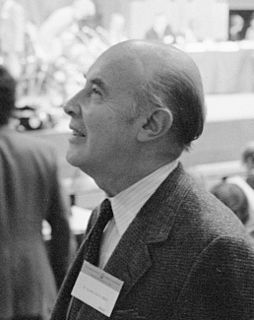A Quote by Edwin Meese
[Nuclear war]... may not be desirable.
Quote Topics
Related Quotes
Could anyone in his right mind speak seriously of any limited nuclear war? It should be quite clear that the aggressor's actions will instantly and inevitably trigger a devastating counterstroke by the other side. None but completely irresponsible people could maintain that a nuclear war may be made to follow rules adopted beforehand, with nuclear missiles exploding in a "gentlemanly manner" over strictly designated targets and sparing the population.
On nuclear war, actions in Syria and at the Russian border raise very serious threats of confrontation that might trigger war, an unthinkable prospect. Furthermore, Trump's pursuit of Obama's programs of modernization of the nuclear forces poses extraordinary dangers. As we have recently learned, the modernized U.S. nuclear force is seriously fraying the slender thread on which survival is suspended.
Teller contended, not implausibly, that hydrogen bombs keep the peace, or at least prevent thermonuclear war, because the consequences of warfare between nuclear powers are now too dangerous. We haven't had a nuclear war yet, have we? But all such arguments assume that the nuclear-armed nations are and always will be, without exception, rational actors, and that bouts of anger and revenge and madness will never overtake their leaders (or military and secret police officers in charge of nuclear weapons). In the century of Hitler and Stalin, this seems ingenuous.
So the idea about how detonation of a nuclear weapon might happen vary, you know - some people are especially concerned about terrorists getting their hands on nuclear weapons and using them. Some people are worried that there might be a nuclear war between India and Pakistan. Some think the Middle East, were Israel already has nuclear weapons and where other countries may be interested at some point and acquiring them, might be a flash point.
The fact that lately some circles, not less powerful by their small size, have been actively promoting certain theories, as dangerous as they are illusory, of a "limited", "winnable" or "protracted" nuclear war, as well as their obsession of "nuclear superiority", make it advisable to bear always in mind that the immediate goal of all States, as was expressly declared in the Final Document of the Special Assembly of 1978, "is that of the elimination of the danger of a nuclear war"
Much as Cold War nuclear strategists could argue about winning a nuclear war by having more survivors, advocates of a Global Warming War might see the United States, Western Europe, or Russia as better able to ride out climate disruption and manipulation than, say, China or the countries of the Middle East.



































